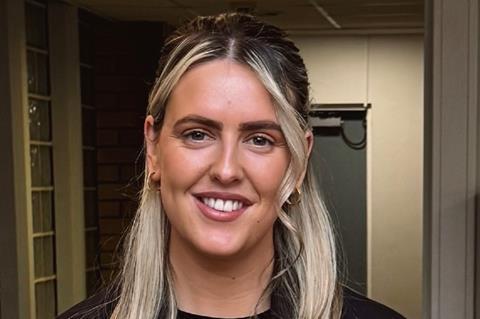Criminal legal aid lawyers have long been fearful about the future of their sector due to the dwindling number of duty solicitors under 35 – however, a solicitor in North Wales has provided a glimmer of hope after joining the ranks at the age of 30.
Gamlins Law, the largest law firm in North Wales, has announced that Chloe Young, who joined the firm a year ago, has become accredited as a duty solicitor.
The first stage of the accreditation process required Young to submit a detailed portfolio of 25 cases where she had represented clients in the magistrates’ court. The second stage involved role play, with Young handling three scenarios and demonstrate her skills interacting with clients and in court.
Young told the Gazette that colleagues and solicitors she spoke to in court about her ambition were encouraging. ‘Duty solicitors are stretched very thin and many that I spoke to realise that fewer are wanting to choose a career in criminal defence work, so when those do, all comments from other criminal law practitioners are positive ones,’ Young said.

According to the Law Society, fewer than 4% of duty solicitors are under 35. Asked what more needs to be done to encourage more under-35s to become duty solicitors, Young said legal aid fees must be raised to make the work financially viable. ‘North Wales is a rural area, and I can see a real issue developing in the coming years when the majority of present duty solicitors retire and there will be very few duty solicitors left without some considerable investment by the government,’ Young said.
Young also urged aspiring criminal defence solicitors not to be put off by what other people - especially those who do not practise criminal law - say. ‘Go and undertake work experience and make your own mind up. I personally think that no other area of law will compare to how interesting working in criminal law is. I hope we can have sufficient investment moving forward to make the work viable,’ Young said.
In November, the government announced an extra £18.5m for police station fees and £400,000 to pay for travel time in areas with fewer than two providers and providers willing to travel from surrounding schemes.
This article is now closed for comment.



























17 Readers' comments